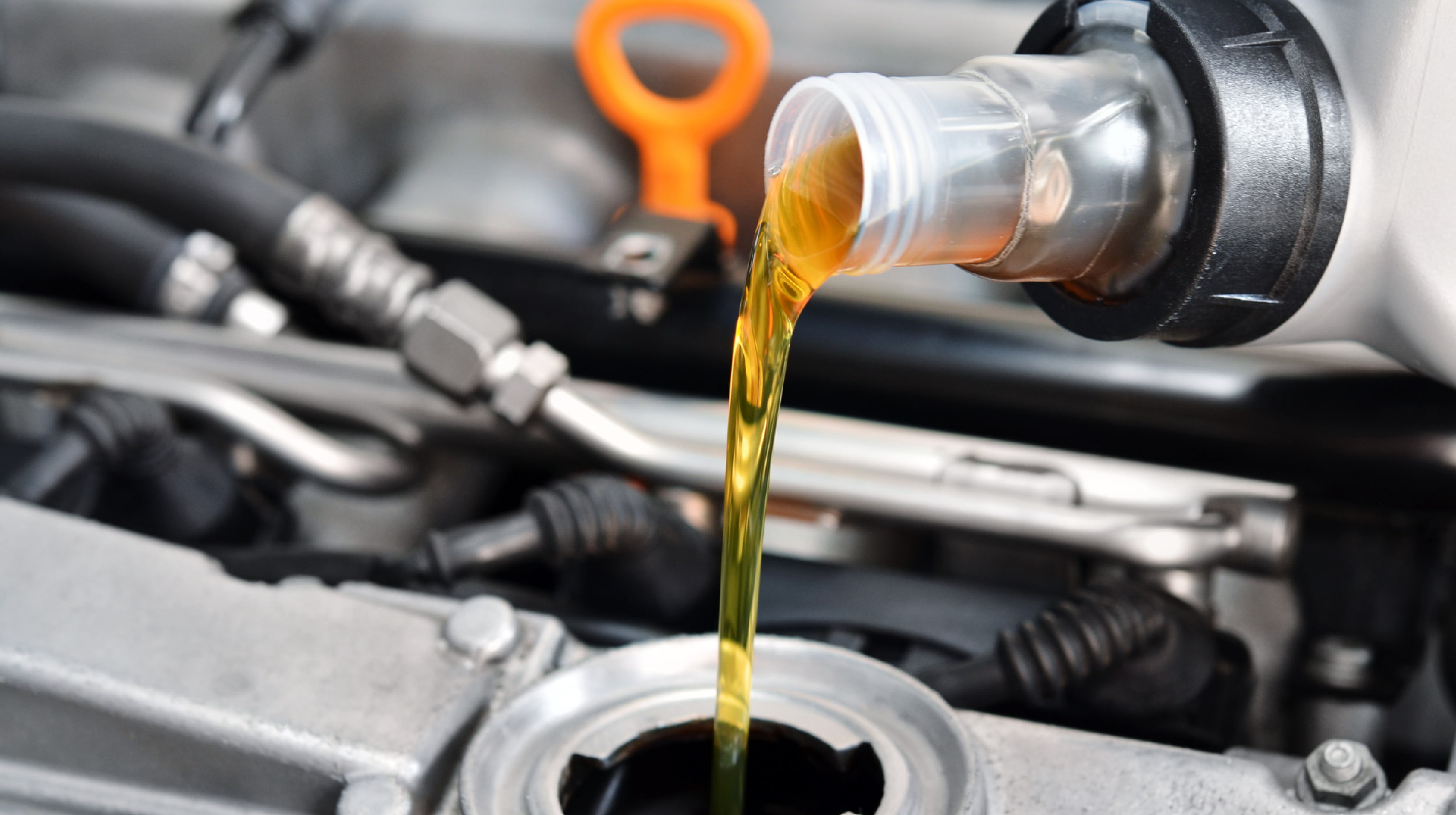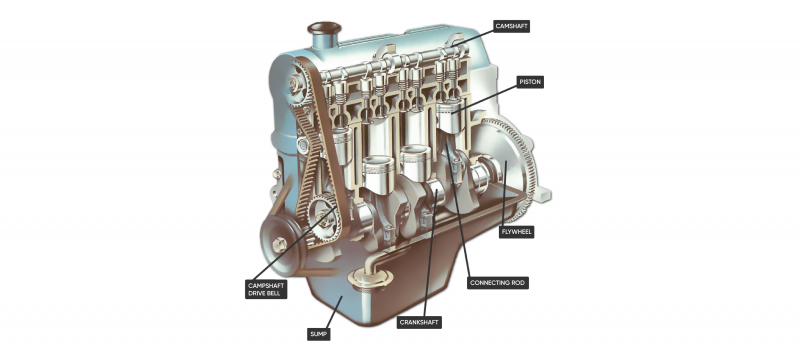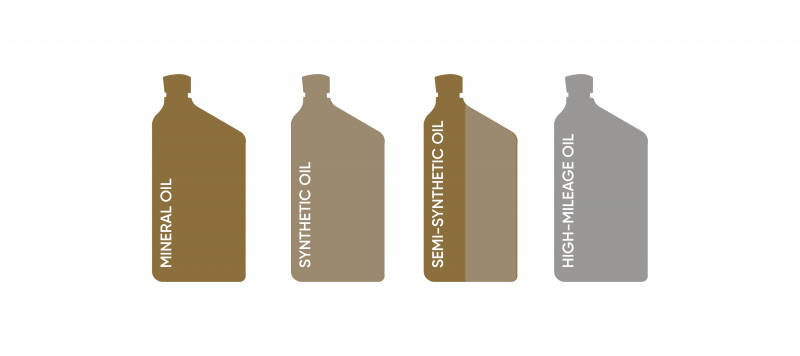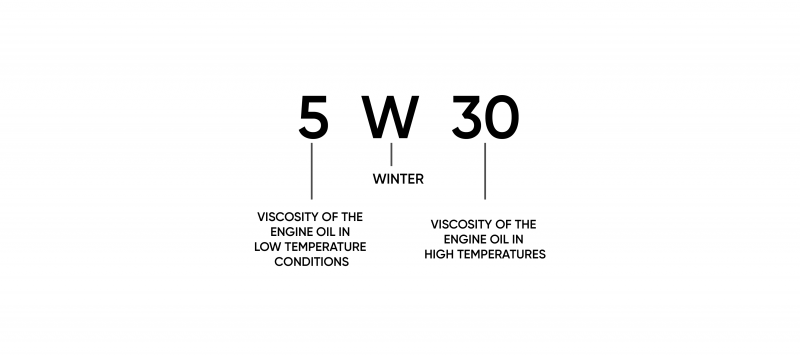
The engine oil is truly the blood of any engine. For a longer and healthier engine life, you need to feed it with the best bike engine oil or the best car engine oil and that too, on regular intervals. Using poor quality engine oil and neglecting the regular engine oil change will not only affect the performance and fuel economy of your vehicle, but it can also cause the innermost vital components to face serious damages – and you may have to spend bigger amounts on costly repairs.
With the overwhelming ranges and varieties of engine oils available in the market, just looking for the best engine oil in India will not be enough. To really choose the best engine oil for a car or bike, you need to have at least some basic knowledge of the composition and components of an engine oil.
What is Engine Oil?
The engine oil is a super vital component of your engine system, without which, your bike or car’s engine won’t even start. An engine oil is a composition of base oil and special additives that is poured into your engine and that functions for the optimum performance and protection of the engine system.
What is Engine Oil Viscosity?
Putting simply, the viscosity for any liquid, like an engine oil, is the fluid’s ability to flow. For example, as oil can flow much easier than honey, but not as easily as water, the oil’s viscosity index is smaller than that of honey but larger than water’s viscosity index. Hence, the higher the viscosity of any fluid, the thicker it is.

For engine oils, the viscosity determines how easily the oil will pour in the engine system at a certain temperature range. Thin oils are more suitable for cold weather as they reduce friction and flow easily. Thick oils, on the other hand, are ideal for hot weather as they maintain a film strength even at high temperature and pressure conditions.
How does an Engine Oil Work?
Engine oil functions by forming a fine layer of slick oil molecules on the entire engine body. Different additives of the engine oil also serve different purposes for enhancing the engine oil’s capability and for adding new properties to the oil.

What are the Benefits of an Engine Oil?
The engine oil is not there to just fill the empty spaces in the engine system, but, it serves numberless purposes; all of which are essential for the optimum functioning of the automobile:

- Lubrication
The metal parts of an engine rub against each other when the engine is running. This rubbing causes friction and heat build-up inside the engine system, resulting in wear and tear of the engine parts. Here comes the role of an engine oil as it forms a lubricating layer of slick oil molecules on the engine parts. This layer acts like a cushion that prevents direct metal to metal contact.
- Acid Neutralisation
The combustion of fuel and the oxidization of other lubricants in the engine system results in the production of certain acids. These acids highly affect the quality of the engine oil and the engine parts. Hence, engine oils are incorporated with special additives that neutralise the acid produced inside the engine body.
- Sludge Removal
The engine sludge is the black gel compound formed on the vital engine parts by accumulation of used engine oil. The sludge is majorly formed due to repeated short commutes and ‘stop and go’ driving. This sludge in the engine body prevents the oil from properly lubricating the parts. Engine oils are thus added with anti-sludge elements that work to remove this sludge and ensure that the engine is clean.
- Corrosion Prevention
Fuel combustion in the engine body causes corrosion and oxidization of the metal parts. The corroded engine parts not only increase friction, but also affect the lifespan of the engine parts. The engine oil is able to prevent the production of corrosion by slowing down the process.
- Increased Fuel Efficiency
As friction in between the metal engine parts is reduced, they are able to work smoothly. This results in less fuel being wasted to generate power to run the engine. When the engine oil is used-up and no longer efficient, more fuel is burnt-up by the piston and the crank to produce power. Hence, having a good quality engine oil increases the fuel efficiency of the automobile.
- Reduced CO2 Emissions
Less fuel consumption also means less CO2 production. So, if more fuel consumption does not bother you, more CO2 production should certainly do.
- Increased Engine Performance and Life
As the engine parts rub against each other, they create a huge amount of friction, resulting in wear and tear. This frictional loss is prevented by the cushioning effect of engine oil. Furthermore, the oil cools the engine down and prevents corrosion, consequently, saving the engine from being clogged and damaged. The vital engine parts corrode less and live longer, hence extending the engine’s life.
What are the Different Engine Oil Additives?
Engine oils are 80% base oil and the other 20% are the special additives. While synthetic oils are specially refined in a way to change their mineral composition and make them better than conventional oils, it is actually the advanced additives that do the real job.

If You Ask, What is the Purpose of Engine Oil Additives, Here-
Under the influence of high engine temperatures, moisture, oxygen, rust, corrosion, engine-wear particles, and byproducts of combustion like unburned gasoline, the engine oil produces sludge and varnish. This gum and tarnish tends to gum up on engine parts, thus damaging them and reducing their efficiency. Additives function to remove the engine’s sludge and varnish to ensure optimum lubrication of the engine parts by the engine oil.
Here are Some of the Most Common Engine Oil Additives:
- Anti-Oxidants
Oxidation is the process where the weakest or most vulnerable component of any material is attacked by oxygen combined with moisture to form a layer of corrosion. Oxidation in engine parts results in the production of acids and sludge. While the acids produce corrosion, the sludge increases the oil’s viscosity. Anti-oxidant additives or oxidation inhibitors in an engine oil act as sacrificial elements that are first eaten up by oxygen, before it can start attacking the engine parts.
- Corrosion Inhibitors
As mentioned above, oxygen combines with moisture to produce acids in the engine body, which in turn, produces corrosion. Corrosion inhibitors work by neutralizing these acids and also forming a layer of protection to repel moisture from the metal surface of the engine.
- Anti-Wear Agents
Anti-wear additives are used to protect the engine parts from loss of metal. These agents are polar additives that attach to frictional metal surfaces. When metal-to-metal contact occurs, these additives chemically react to the metal surface. The heat of contact activates these anti-wear agents and they form a film on the metal surface.
- Detergents
Detergents are alkaline compounds that are added to engine oils to serve two major purposes. One, is to remove the deposits on metal parts and the other is to neutralise the acids. Detergent additives are generally used in conjunction with dispersants.
- Dispersants
Dispersants combine with detergents to keep the engine clean and free of acids. Dispersants function by enclosing minute soot particles (less than 1 micron) by forming a layer on the particle to cut it off from the engine oil. This way, they are able to keep the soot particles separated from the oil, hence keeping them from causing any damage.
- Friction Modifiers
As explained above, increased friction in the engine parts results in more fuel consumption. Friction modifiers are in engine oils to lower this friction and in turn, increase the fuel economy.
- Viscosity Index improvers
Viscosity index improvers are large polymers that serve two purposes. One, they prevent the oil from thinning at higher temperatures. Two, they improve the oil’s flow at lower temperatures. Viscosity index improvers are added in the engine oil in a coiled-up form. As the temperature rises, these polymers uncoil and prevent the oil from thinning.
Types of Engine Oil Based on Their Composition
Being majorly made of a base oil, engine oils are classified according to the type of base oil used in their composition:

- Mineral Engine Oil
Conventional or mineral oil is crude oil extracted from the ground and refined in a factory. After certain processes and additives, the crude oil’s viscosity is improved to make it efficient for usage as engine oil. Conventional or mineral oil is the most economical option out of all other engine oil types. However, because of being naturally-occurring materials, they tend to be less refined than other engine oil types.
- Synthetic Engine Oil
A fully-synthetic engine oil is super refined oil completely manufactured in a laboratory. Being prepared in a controlled environment, they are much more consistent and closer to the standard. They provide increased engine protection and performance. Synthetic oils are obviously more expensive than conventional engine oils. However, the best synthetic engine oil in India also lasts much longer than mineral oils.
Purchase the best synthetic engine oil in India from Carorbis.com.
- Semi-Synthetic Engine Oil
A synthetic blend oil is a mixture of synthetic and mineral oil. It is kind of a hybrid composition that comes with some benefits of both the oil types. Semi-synthetic oils are a great option for those who are looking to give their engine a little help while also being reluctant to shell out a lot of money. This is because a synthetic blend oil is costlier than mineral oils but cheaper than a fully-synthetic oil. The best semi-synthetic engine oil for car or bike in India also lasts longer than conventional oil but not as long as synthetic oil.
- High-Mileage Oil
A high-mileage oil is an entirely different category of engine oils. These oils come with seal conditioning additives that cause the o-ring, seals and gaskets to swell. Protecting the engine seal in this way prevents oil evaporation and thus increases overall engine performance. High-mileage oil is most suitable for vehicles that have travelled more than 1,20,000 kilometers according to their odometer. It is also recommended for older vehicles that have travelled fewer kilometers as the engine seal tends to erode overtime, regardless of the mileage.
Mineral or Synthetic, Which Oil is Better?
It is undebatable that synthetic engine oils are better than mineral oils. The oil molecules of synthetic oils are far more even and consistent than those of mineral oils. Hence, they are able to form a smooth, equal cushion layer on the engine parts. Doing so minimises friction and metal-to-metal contact of the vital engine parts. In this way, synthetic oil not only reduces wear and tear, but boosts the overall protection and performance of the engine oil. The only downside of choosing synthetic oils over conventional engine oils has to be their cost.
Mineral oils, on the other end, incorporate uneven slick oil molecules that are not able to layer the engine as effectively as a synthetic or synthetic blend oil. However, mineral oils do come with important additives that prevent engine wear and tear. So, as long as you use good quality and the right type of engine oil, recommended by your manufacturer, and take care of regular oil changes, you are still keeping your engine in a very good condition.
Types of Engine Oil Based on Their Grade
The Society of Automotive Engineers established a motor oil grading system that is accepted and followed worldwide, including India. The basis of this system was an oil’s property to change its viscosity at different temperatures to define the types of engine oil.
- Single-Grade Engine Oil
Single-grade oils are used in industrial applications where temperature change isn’t significant. Some classic cars are also lubricated with single-grade engine oil. Automobile engines see extreme temperature changes. Hence, single-grade oils are rendered mostly useless for this application.
- Multi-grade Engine Oil
Multi-grade oils are advanced engine oils that are able to modify their viscosity according to the operating temperatures.
Decoding the Nomenclature of Engine Oil
When choosing an engine oil, it is essential to consider the climatic conditions of the place you live in. Thin oils are less prone to thicken at lower temperatures and hence will enable you to start the engine with ease. On the other hand, a thick oil will be less prone to thinning at hot temperatures. Thus, maintaining the seal with a constant layer of oil on the engine. The nomenclature of an engine oil reflects the viscosity of the oil at certain temperatures.
The viscosity of an oil changes with the temperature- the hotter the temperature, the thinner the oil. This property of engine oil led to the development of multigrade oils to provide engine protection and performance around a range of temperatures. The numerical code system or the nomenclature for grading engine oils has been established by the Society of Automotive Engineers. Here is what it stands for:

- The Letter W
The letter W in the name of an engine oil, like 5W30, stands for ‘winter’.
- The Number Before the W
The number before the letter W, like the number ‘5’ in the above example, stands for the viscosity of the engine oil in low temperature conditions. Precisely speaking, this number is the viscosity of the engine oil at -17.8 degree Celsius (0 degree Fahrenheit). The lower this number, the thinner the oil will be at lower temperature, and the better will be the engine oil’s performance. This is because the oil with a lower viscosity in cold weather will be less thick as compared to the one with a higher viscosity.
Too thick an engine is not able to flow easily through different parts of the engine. Hence, being thin, an engine oil with smaller number before the W will be able to flow better in the engine at lower temperatures.
- The Number After the W
The number after the W in an engine oil’s name, the ‘30’ in this example, stands for the viscosity of oil at higher temperatures. This number is actually the oil’s viscosity at 100 degree Celsius. Considering that you live in the hot Indian weather, this number should be what you must be more concerned with. As already mentioned, oils tend to thin at higher temperatures and a thin engine oil will not be able to provide optimum protection to the engine.
Too thin an engine oil will not be able to prevent metal-to-metal contact of the engine parts. Hence, greater the number after the W, higher will be the oil’s viscosity at higher temperatures, and lesser will be its tendency to thin.
Engine Oil Grades List
Here is a list of some of the most common engine oil grades used in India:
- 0W40
This engine oil acts as 0 weight oil in colder climates and 40 weight oil in hot conditions. This oil is the best oil that you can purchase for winters.
Tap here to purchase the best 0W40 engine oil from Carorbis.com.
- 10W30
This oil has a viscosity index (VI) of 10 at -17.8 degree Celsius and viscosity index of 30 at 100 degree Celsius.
Shop for the best 10W30 engine oil from Carorbis.com.
- 15W40
This oil works as 5 weight oil at colder temperatures and as 40 weight oil at hotter temperatures.
Carorbis offers the best 15W40 engine oil for car and bike. Tap here to buy it.
- 15W50
This oil is the best engine oil for bike or car that you can get if you live in extremely hot climatic conditions.
Purchase the best 15W50 engine oil for bike and car, only from Carorbis.com.
- 20W40
This oil has a VI of 20 at -17.8 degree Celsius and a VI of 40 at 100 degree Celsius.
Get the best 20W40 engine oil for your bike or car from Carorbis.com.
- 5W30
5W30 is one of the most common engine oils available for Indians as it works excellently both in cold and hot weather conditions around the Indian nation.
Carorbis presents the best range of 5W30 engine oil for bike and car.
- 5W40
5W40 engine oil works as 5 weight oil in winters and 40 weight oil in summers.
Shop for the best 5W40 engine oil from Carorbis.com.
Difference Between Petrol and Diesel Engine Oils
A lot of people ask, ‘Can I replace petrol engine oil with diesel engine oil?’ or vice versa. Well, no! You can not switch between diesel and petrol engine oils. Even if you use the best diesel engine oil in India, it is not recommended to pour it into a petrol engine. While both these oils are basically the same- made of base oils with additives, there are a lot of differences in their compositions for which reason they can not replace each other. Here, we talk about three parameters to distinguish between petrol and diesel engine oil- the viscosity, additives, and vehicle’s fuel emissions.
- Viscosity
Generally, petrol engine oils have lower viscosity than diesel engine oils. Pouring higher viscosity diesel engine oil into a petrol-driven engine will increase fluid friction in the parts, affecting the life of both the engine, and the engine oil. A higher viscosity oil will also make it harder to start the engine in colder conditions.
- Special Additives
Diesel engines produce a lot more soot and combustion byproducts as compared to petrol engines. Hence, they have to be incorporated with more additives per volume so the acids produced in the process can be neutralised. When this oil with extra additives is added to a petrol engine, the additives still do their job and start washing on the cylinder walls. This can have a severe effect on the seal of the engine, resulting in reduced compression and efficiency.
- Catalytic convertor
Diesel engine oils incorporate a higher amount of an anti-wear component called zinc dialkyldithiophosphate (ZDDP). This particular component can damage and even cribble the catalytic convertor while exiting the vehicle. Hence, a catalytic converter of a diesel engine is built to deal with this problem. Convertors of petrol engines, on the other hand, aren’t. Hence, pouring diesel engine oil into a petrol engine affects the exhaust system of the automobile.
What are Two-stroke and Four-stroke Engine Oils?
When searching the internet for the best 2 stroke or 4 stroke engine oil in India, do you ever wonder why is a two-stroke engine oil different from a four-stroke engine oil?
2 stroke and 4 stroke are two different engine types with an entirely different working mechanism. The intake, compression, power and the exhaust stroke make-up one full cycle of any engine. For a 2 stroke engine, it takes two strokes of the piston to complete this cycle. On the other hand, for a 4 stroke engine, it takes four piston strokes for this cycle to be completed.
- 2 Stroke Engine Oil
A 2 stroke engine involves mixing of the engine oil with the fuel to facilitate combustion. Hence, engine oil for 2 stroke engines should be able to mix easily with the fuel and burn well in the engine’s combustion chamber.
- 4 Stroke Engine Oil
For 4 stroke engines, the engine oil is only used to lubricate the engine parts and is not consumed in the process. Hence, a 4 stroke engine oil has to serve the purpose of preventing wear and tear in the engine parts and keeping them as clean as possible.
Shop for the best engine oil for bikes for 4 stroke from Carorbis.com.
Which Engine Oil Is Best for Car or Bike Engine?
As a general thumb rule, you should refer to the engine oil recommended in your manufacturer’s manual. You don’t have to actually look for the best engine oil in India for car or bike because each vehicle model is different and hence, requires different amounts of care and protection. So, before you ask Google ‘which oil is best for two wheeler?’, or ‘best engine oil for car’ for that matter, be sure to ask the same question to your vehicle’s manufacturer first.
Explore the best range of car engine oil and bike engine oil at Carorbis.com.
Best Engine Oil Brands in India
Luckily, there is a good range of engine oil brands in India that offer high quality lubricants at accessible prices. Here is a list of some of the best engine oil brands in India:

- Shell
The Royal Dutch Shell is one of the leading suppliers of premium lubricants, including engine oil, around the world. The best reasons why you should buy Shell engine oil are:
- Maximises engine performance in all weather conditions
- Suitable for all petrol, diesel, and gas-powered stations.
- Mobil 1
Mobil 1 offers 0W40 engine oil that is the best value-for-money engine for your vehicle. Here is why:
- Suitable for both diesel and petrol engines
- Seamless performance in all weather conditions
- Exceptional cleaning capability and wear protection
- Gulfstar
Gulfstar is another trusted and renowned lubricant brand in India. The reasons to choose Gulfstar will be:
- Cleaner engine with advanced additives
- Increased resistance to viscosity loss
- Castrol
Castrol is the leading brand for car and bike engine oil in India. The best reasons to count on Castrol have to be:
- Excellent protection for city driving
- Minimized wear during start and stop operation
- Motul
Motul 8100 Xmax 0W-40 Synthetic Technology Car Engine Oil can be used in both petrol and diesel engines. The benefits of this oil include:
- Excellent performance in all temperature conditions
- High drainage period means you don’t have to change the oil as frequently as other engine oils
- Ideal for luxury vehicles like Audi and Mercedes
- Valvoline
Valvoline is an American company that deals in high-quality automotive oils, additives, and lubricants. You can choose Valvoline engine oil for the following reasons:
- Low speed pre-ignition protection
- Smooth and quiet engine
- Competent price
- Bosch
Bosch is an international automobile brand that deals in a wide range of auto accessories and parts, including high-quality engine oils. The best reasons to count on Bosch engine oil have to be:
- Reduced engine heat and related damage
- Increased fuel economy
- Gulf
With Mahendra Singh Dhoni as its brand ambassador, Gulf oil is another very popular lubricant manufacturer in India. A few reasons to choose Gulf have to be:
- Minimize sludge build-up
- Easy start-up in cold seasons
- Reduced clutch slippage
- Servo
Servo brings a range of premium engine lubricants, especially curated for modern automobiles. The best reasons to choose Servo engine oils for bikes are:
- Good quality at affordable price range
- Excellent oxidation stability
- Prevention of soot-induced viscosity
Best Engine Oil for Car
Editor’s choice: Bosch Synthup API SN/CF SAE 5W 40 Fully Synthetic Engine Oil For Passenger Cars
Bosch presents the best engine oil for car for cleaner, noise-free engine and extended engine life. The oil is compatible for all modern cars running on diesel, petrol, CNG, or LPG. Bosch’s engine oil is added with advanced additives, each of which serves a different purpose to improve the overall driving experience and protect the different engine parts from gradual damage.
Best Engine Oil for Bike
Editor’s choice: Bosch Josh 4T 20W-40 API SL engine oil for bikes
The best engine oil for bike has to be the 20W40 Josh engine oil by Bosch. This particular engine oil highly viscous, top-notch quality lubricant that is also equally affordable. The latest wet clutch optimisation formula provides increased cooling to the wet clutch, resulting in instant pick up. Bosch Josh 20W40 also incorporates special additives that keep the engine corrosion-free, thus, prolonging the overall engine life.
Best Synthetic Engine Oil
Editor’s Choice: Castrol Power1 Ultimate 4T 15W50 Full Synthetic Engine Oil for Bikes
The latest Castrol Power1 15W50 fully synthetic engine oil beats is better than most key competitors. The ultimate 5-in-1 formula provides supreme performance and excellent acceleration as it is proven to accelerate 2.2 seconds faster than other engine oils in the market.
Best Semi-synthetic Engine Oil
Editor’s Choice: Shell Advance AX7 4T 10W-40 API SM Synthetic Technology Motorbike Engine Oil
Shell’s 10W40 engine oil is specially tailored to meet stressful operating conditions and high-performance demands of modern engines. The advanced synthetic formula provides 29% better protection at higher temperatures.
Purchase the best semi-synthetic engine oil from Carorbis.com.
Best Engine Oil According to Cubic Capacity (CC)
Before we reveal the best engine oil for different cc of the bike, let us first understand what is the cubic capacity of a bike. The cubic capacity of a motorcycle is the empty space available in the bike’s engine to pour in the engine oil. The larger the cubic capacity of the engine oil, the more powerful the engine is, but it also requires more fuel to run as compared to an engine with a smaller engine capacity.
- Best Engine Oil for 125cc – 150cc Bike Engine
Engine oils with motor grades 10W30, 10W40, and 20W40 are most suitable for engines with 125 and 250 cubic capacity. Shell Advance AX7 10W-40 synthetic based motorcycle engine oil, or Motul 3000 4T 10W-30 mineral engine oil can be good choices.
- Best Engine Oil for 200cc – 250cc Bike Engine
20W50 and 10W50 bike engine oil prove to be the best engine oil for 200 and 250 cc bike engines. You can go for Motul 3100 4T Gold Semi-Synthetic engine oil or Gulfstar 15W-50 API SN hybrid petrol engine oil for motorbikes.
Frequently Asked Questions
Q 1. When should I change engine oil in my vehicle?
Ans. For most vehicles, it is recommended to change engine oil after every 8,000 to 12,000 kilometers. However, with modern fully-synthetic lubricants, it can take up to 20,000 kilometers before you need to change your engine’s oil. The best way to determine is to refer to your manufacturer’s manual or get your vehicle inspected by a mechanic.
Q 2. Is it okay to use a different grade of motor oil than recommended?
Ans. It is always best to use the motor oil grade recommended by your manufacturer. Using a heavier grade of engine oil will increase the fuel economy and shorten overall engine life. On the other hand, using a lighter grade oil excessively increases wear and tear of the engine parts.
Q 3. Can I switch from one type of engine oil to another?
Ans. Mineral, synthetic and fully-synthetic engine oils are mostly compatible with all vehicle types. Hence, it can be safe to switch from one oil to another. Just that switching from synthetic to mineral oil will impact the performance of the engine for obvious reasons. However, the best engine oil to use in your automobile is the one recommended by your manufacturer.
Q 4: Is thicker engine oil better?
Ans. The gap between the bearing and the rotating shaft increases over time. A change in this gap affects the lubrication. Sometimes, a thicker oil is used to compensate for these increased bearing clearances. However, each engine is designed to specific tolerances. Hence, you should also stick to the engine oil viscosity recommended in the manufacturer’s user’s manual.
Q 5: How to dispose of used engine oil?
Ans. Used up engine oil is a serious hazard to the environment. So much so, that a major part of oil pollution is caused by used engine oil. While there are organic options available, they are majorly inaccessible for the general public. Hence, it becomes a moral duty of all citizens to properly dispose of the used engine oil from their automobiles.
The best way to get rid of used engine oil is to give it to your local mechanic or workshop person. They generally have a tie-up with oil refining agents who collect this oil, recycle it, and reuse it as crude oil for different purposes, for example, lubricating concrete shutterings at construction sites.
Q 6: How to measure car engine oil?
Ans. To check the level of car engine oil, follow these steps:
- Park your car on level ground.
- Open the hood of the car and look for the dipstick.
- Once you locate the dipstick, you have to pull it out and wipe any oil from its body.
- Put the dipstick back in the tube and push it all the way in.
- Now, pull it out again.
- Look at the dipstick carefully to check if the level of oil lies between the ‘low’ and ‘high’ markings.
- If the oil is below the ‘low’ marking, you need to refill your engine.

Takeaway
Choosing the right type and the best engine oil in India is vital for optimum performance of your engine. The right engine oil will also boost the engine’s efficiency and fuel economy of the vehicle.
Also, for an engine to achieve its maximum efficiency, the quality of the engine oil should be maintained. Used up engine oil is not able to play its role potentially, and thus is as good as none. Hence, make sure to change the engine oil regularly.
Thank you for reading through to the end. Hope you found this article insightful. Have a wonderful day ahead!









